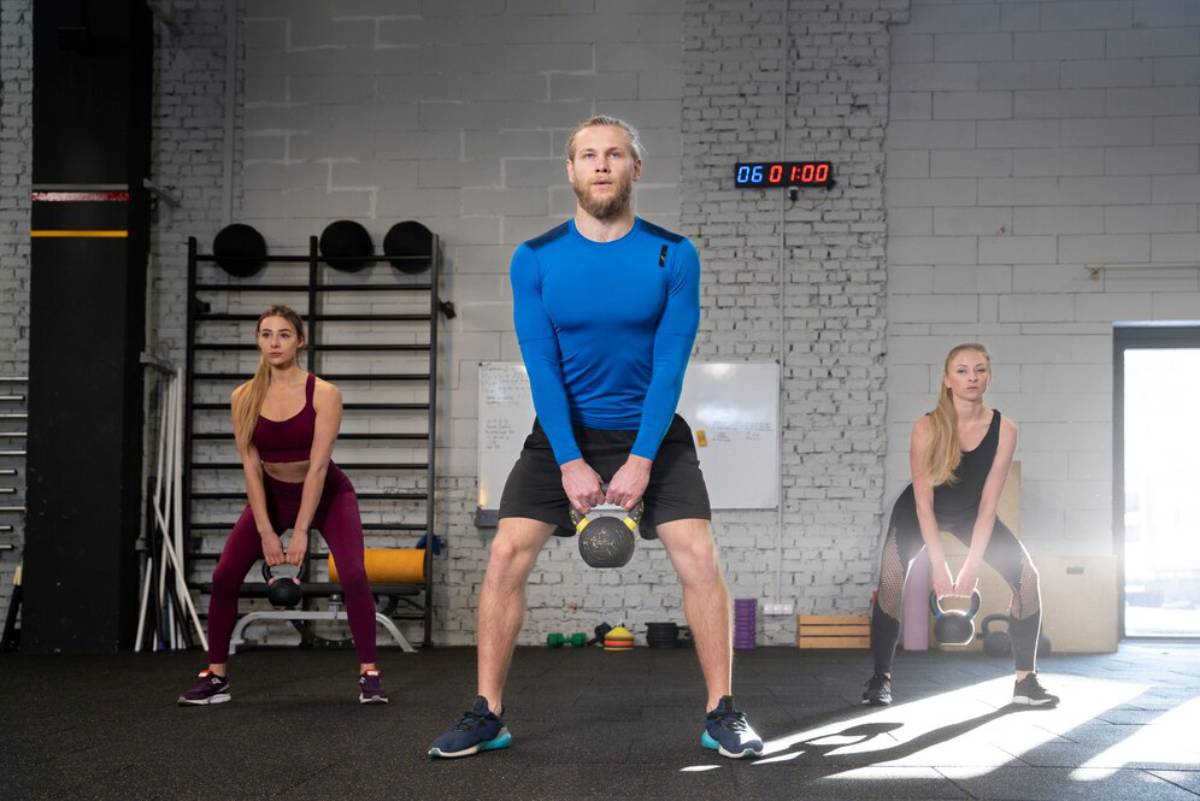
The Role of Gut Health in Overall Fitness
When it comes to improving fitness, most people focus on workouts, protein or sleep. But there’s another key component that doesn’t get as much attention: your gut. Referred to as the “second brain,” the gut is integral to your body’s feelings, functioning, and performance.
Gut health is key to all-over fitness wellness, from digestion to immune function — even mood. In fact, if your gut is out of balance, it could be holding back your energy, recovery, and physical progress—no matter how hard you train.
In this post, we explore the connection between your digestive system and holistic health, along with practical tips to support your gut and boost your fitness from the inside out.
What Is Gut Health?
Your gut isn’t just your stomach—it includes the entire digestive tract, especially the intestines. Inside your gut live trillions of bacteria, fungi, and other microbes. Collectively, this is called the gut microbiome.
A healthy gut means:
- A balanced microbiome (with more good bacteria than bad)
- Strong intestinal lining (to prevent toxins from leaking into the bloodstream)
- Good digestion and nutrient absorption
- Proper communication between the gut and the brain
When your gut is balanced and functioning well, it contributes to better immunity, mood, metabolism, and recovery—all essential for fitness and general wellness.
How Gut Health Affects Fitness Wellness
1. Nutrient Absorption and Energy Levels
Your gut digests food and aids in the absorption of the vitamins and minerals your body needs. Even a healthy diet is not enough without good gut health.
- Well-functioning intestines enhance the absorption of essential nutrients, including magnesium, iron, and B vitamins
- They help with muscle function, energy production, and endurance
- A poor gut health can itself cause fatigue and sluggishness—even if you exercise regularly
2. Inflammation and Recovery
Chronic inflammation slows muscle recovery and can contribute to joint pain or fatigue. An unhealthy gut is one of the biggest sources of hidden inflammation in the body.
- Gut imbalances can trigger the release of pro-inflammatory markers
- This affects muscle repair, training progress, and your ability to recover between sessions
- A strong gut reduces systemic inflammation, helping you bounce back faster
3. Immunity and Illness Prevention
Over 70% of your immune system is located in your gut. If your gut is compromised, so is your immune response.
- A strong gut supports your immune defence, reducing your chances of falling ill
- This means fewer missed workouts and better consistency in your training
- Gut bacteria also help regulate inflammation and immune tolerance
4. Mental Health and Motivation
Your gut and brain are closely connected via the gut-brain axis. Gut microbes produce neurotransmitters like serotonin and dopamine, which influence mood, motivation, and focus.
- A balanced microbiome supports emotional resilience
- This helps reduce stress, anxiety, and low moods—all of which impact your drive to stay active
- A better mood equals better workout consistency and mental clarity
5. Weight Regulation and Metabolism
Gut health can influence how your body stores fat and burns energy.
- Certain bacteria are linked to better metabolic health and insulin sensitivity
- A healthy gut helps regulate hunger hormones like ghrelin and leptin
- Poor gut health may lead to cravings, weight gain, or plateaus in progress
Signs Your Gut May Be Out of Balance
You might not think about your gut every day, but it can send warning signs when it’s struggling:
- Bloating or gas after meals
- Frequent digestive issues (constipation, diarrhoea)
- Low energy despite good sleep
- Trouble concentrating or mood swings
- Skin issues like eczema or acne
- Persistent cravings or unstable appetite
If you notice a few of these signs regularly, it may be time to give your gut more attention.
How to Support Gut Health for Holistic Fitness
Improving gut health isn’t complicated, but it does take consistency. Here are practical ways to keep your digestive system strong and balanced.

1. Eat More Fibre-Rich Foods
Fibre feeds your good gut bacteria and keeps your digestion moving.
- Include vegetables, fruits, whole grains, legumes, and seeds
- Aim for 25–35 grams of fibre per day
- Variety is key—different bacteria feed on different types of fibre
2. Include Probiotics and Fermented Foods
Probiotics are live bacteria that help balance your gut microbiome.
- Try yoghurt with live cultures, kefir, sauerkraut, kimchi, kombucha, and miso
- If using supplements, choose strains like Lactobacillus and Bifidobacterium
3. Stay Hydrated
Water helps your body break down food and supports healthy bowel movements.
- Drink at least 6–8 glasses of water daily
- Herbal teas like peppermint or ginger can also support digestion
4. Avoid Overuse of Antibiotics and NSAIDs
These medications can disrupt the balance of your gut bacteria.
- Only take antibiotics when truly needed
- If you do, support recovery with probiotics and gut-friendly foods
- Limit unnecessary use of ibuprofen and similar drugs
5. Limit Processed and Sugary Foods
Refined sugar and additives can feed harmful bacteria and cause inflammation.
- Minimise packaged snacks, sweetened drinks, and artificial sweeteners
- Choose whole, minimally processed meals whenever possible
6. Reduce Stress
Stress negatively affects gut health by disrupting digestion and microbiome balance.
- Practise stress management techniques like meditation, breathing, and nature walks
- Build routines that give you moments to pause and reset
- Good sleep is also key—aim for 7–9 hours per night

Gut Health and Functional Fitness: The Bigger Picture
Your gut doesn’t work in isolation. It’s part of your whole system. That’s why holistic health and functional training go hand in hand.
Functional training focuses on movements that improve real-life strength and mobility. When your gut is strong and balanced, your body performs better during these movements:
- You recover faster
- You feel more energised
- You reduce your risk of injury
- You’re mentally clearer and more focused
By supporting your gut, you support your ability to train, move, and live better.
When to Seek Professional Help
If you’ve made changes and still struggle with gut issues, it may be worth consulting a professional.
- Registered dietitians can help identify food triggers
- Functional medicine practitioners can test for gut imbalances
- Gastroenterologists can address long-term or serious digestive issues
Never ignore persistent symptoms—they’re your body’s way of asking for support.
Final Thoughts: Fueling Fitness from the Inside Out
Great health doesn’t start with your biceps—it starts with your belly. Your gut affects everything from energy and metabolism to mood and muscle recovery. By looking after your digestion, you’re supporting the foundation of your overall well-being.
True fitness wellness isn’t just about what you do in the gym. It’s about what you eat, how you rest, how you feel—and how all these pieces connect. That’s the power of holistic health.
So as you work on your goals, don’t forget your gut. Feed it well, treat it gently, and give it the care it needs. Your body will thank you—with better performance, better health, and better results that last.


